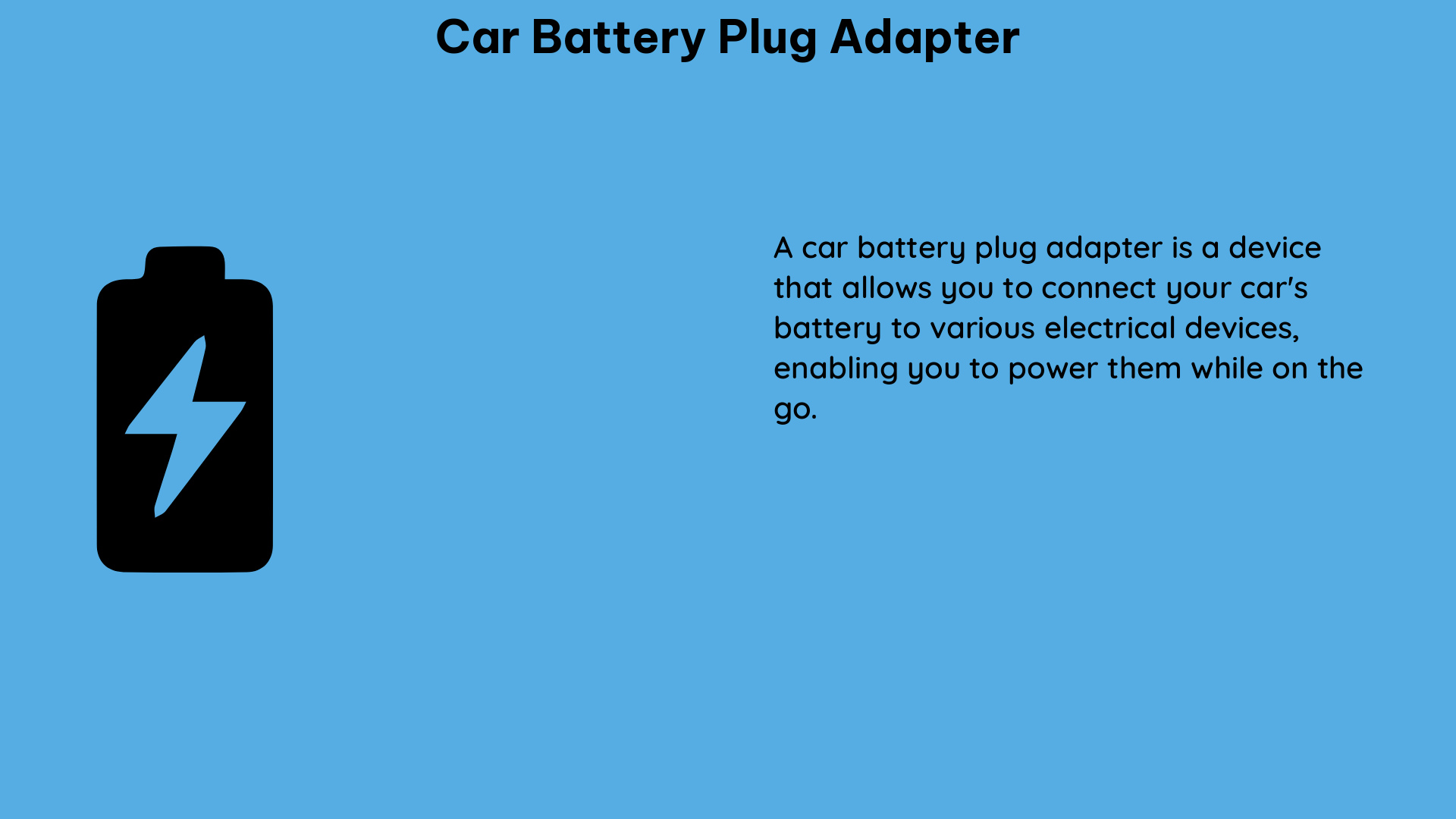A car battery plug adapter is a versatile device that allows you to connect a 12-volt direct current (DC) appliance to a standard wall outlet. By converting the alternating current (AC) from the wall outlet to DC, these adapters enable you to power a wide range of car accessories and portable devices, making them an essential tool for anyone who spends time on the road.
Understanding the Technical Specifications of Car Battery Plug Adapters
-
Input Voltage: Car battery plug adapters typically have an input voltage range of 100-240 volts AC, which covers the standard household outlet voltages used in most countries around the world. This wide input voltage range ensures compatibility with a variety of power sources, making the adapters suitable for both domestic and international use.
-
Output Voltage: The output voltage of a car battery plug adapter is 12 volts DC, which matches the standard voltage used by most car accessories and portable devices. This standardized output voltage ensures seamless integration with a wide range of 12V DC-powered equipment, from car chargers and GPS units to portable fans and mini-fridges.
-
Output Current: The output current of car battery plug adapters can vary significantly, with models ranging from 1 amp to 10 amps or more. The specific output current rating is an important consideration, as it determines the maximum power that the adapter can safely deliver to the connected device. It’s crucial to match the adapter’s output current to the power requirements of your device to avoid overloading or potential damage.
-
Efficiency: The efficiency of a car battery plug adapter is the ratio of the output power to the input power, expressed as a percentage. High-quality adapters typically have an efficiency range of 80-90%, meaning that 80-90% of the input power is converted to usable output power, with the remaining 10-20% lost as heat during the conversion process. Higher efficiency translates to less energy waste and better overall performance.
-
Size and Weight: Car battery plug adapters are designed to be compact and portable, with most models measuring just a few inches in size and weighing only a few ounces. This makes them easy to store, transport, and use in a variety of settings, from your vehicle to your campsite or outdoor adventure.
Choosing the Right Car Battery Plug Adapter for Your Needs

When selecting a car battery plug adapter, it’s important to consider the specific requirements of the devices you plan to power. Here are some key factors to keep in mind:
-
Voltage and Current Compatibility: Ensure that the adapter’s output voltage and current ratings match the input requirements of your device. Using an adapter with the wrong specifications can lead to damage or improper operation.
-
Power Capacity: If you plan to power multiple devices or high-power accessories, choose an adapter with a higher output current rating to ensure sufficient power delivery.
-
Durability and Safety Features: Look for adapters with features like overcurrent protection, short-circuit protection, and thermal overload protection to safeguard your devices and prevent potential hazards.
-
Portability and Convenience: Consider the size, weight, and form factor of the adapter, as well as any additional features like a long power cord or a built-in USB charging port.
-
Brand Reputation and Warranty: Opt for adapters from reputable manufacturers that offer reliable performance and a solid warranty for peace of mind.
Proper Usage and Maintenance of Car Battery Plug Adapters
To ensure the safe and effective use of your car battery plug adapter, follow these guidelines:
-
Read the Manufacturer’s Instructions: Carefully review the user manual and follow all instructions for proper installation, operation, and maintenance.
-
Verify Voltage and Current Compatibility: Double-check that the adapter’s output specifications match the input requirements of your device before making the connection.
-
Avoid Overloading: Do not exceed the adapter’s maximum output current rating, as this can lead to overheating, damage, or even fire hazards.
-
Keep the Adapter Clean and Dry: Regularly inspect the adapter for any signs of damage or wear, and store it in a clean, dry environment when not in use.
-
Use Appropriate Power Outlets: Ensure that the wall outlet you’re using is properly grounded and can safely accommodate the adapter’s power requirements.
-
Monitor Usage and Disconnect When Not in Use: Keep an eye on the adapter and the connected device during use, and unplug the adapter when it’s not in use to conserve energy and prevent potential issues.
By understanding the technical specifications, choosing the right adapter for your needs, and following proper usage and maintenance practices, you can safely and effectively power your devices on the go with a car battery plug adapter.
References:
- Outlet Adapter to Mimic a Car Battery to Power 12V Devices
- Keeping Settings While Replacing Battery
- Tackling a Logistical Task
- Understanding Car Battery Voltage and Charging
- How to Choose the Right Car Battery Charger

The lambdageeks.com Core SME Team is a group of experienced subject matter experts from diverse scientific and technical fields including Physics, Chemistry, Technology,Electronics & Electrical Engineering, Automotive, Mechanical Engineering. Our team collaborates to create high-quality, well-researched articles on a wide range of science and technology topics for the lambdageeks.com website.
All Our Senior SME are having more than 7 Years of experience in the respective fields . They are either Working Industry Professionals or assocaited With different Universities. Refer Our Authors Page to get to know About our Core SMEs.